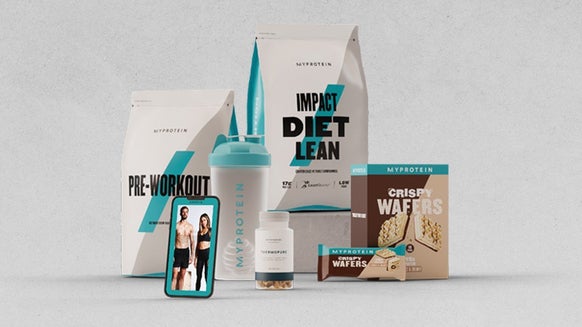BCAA vs Protein | Which Should You Take?
Supplements, probably the most controversial aspect of the fitness industry, but yet still extremely popular.
With all the mixed information on which supplements are helpful, which are useless, or if the idea of supplements are unnecessary in and of themselves, it’s hard to know what to believe. While the answer is never as cut and dry as this, we have a pretty good understanding in recent years of what supplements can actually do for an individual.
Two of the most popular supplements that are a staple in almost every fitness routine are protein powders, and BCAA’s (branch chain amino acids). While both do have a purpose and can be beneficial in certain situations, if you had to choose one which should it be?
In this article, we will be discussing the benefits of these supplements, the prices of each, and who each supplement would be better suited for (because spoiler, you can benefit more from one or the other depending on your situation).

What Are These Supplements And What Do They Do?
Protein
In determining which of these supplements will benefit you more, it is important to know what each of them are and their benefits to some degree. Protein powder is exactly what it sounds like, whether it be made from dairy, soy, pea, rice, or any other ingredient. Usually low in carbs and fat, this artificially sweetened powder is usually around 90% to 95% protein and is very safe to use in moderation. It can be used in shakes mixed with water or milk, put into smoothies, combined with oats, baked into goods, used to make homemade protein bars, and endless other creative uses.
For practicality, protein powder is very convenient if you have trouble meeting your daily protein needs, and is cheap for what you are getting. A kilogram (2.2 pounds) of protein powder should run you about an average of $30 and feed you for a month if you only use a scoop a day (which equates to a dollar a day for 20-25 grams of protein). Hypothetically to get enough protein to feed a 150 pound man for a day trying to gain or maintain muscle, it would cost you at most $6 of protein powder a day (but you shouldn't need more than a scoop or two a day while the rest of your protein should come from whole foods), which is very cheap.
BCAA
BCAAs are actually molecularly the exact same as protein, but a bit more specific. Protein is made up of 20 amino acids that have countless uses in the body, but only a few are actually used to mainly help you build muscle. These three essential amino amino acids (known as branch chain because of their structure) are leucine, isoleucine, and valine. High-quality protein powder contains these BCAA’s but have one drawback that BCAA supplements don’t carry caloric energy. Since they do contain zero calories, supplemental BCAA’s has the benefit of promoting muscle growth (and sometimes more importantly preventing muscle catabolism, or the opposite of growth) without breaking a fast or wasting precious calories.
This is why BCAA’s are usually more beneficial in a calorie restricted diet, especially when muscle retention is important (i.e. fasted weight or cardiovascular training when muscle catabolism is more likely). Unlike protein powder, BCAA’s are not as diverse with their uses though, pretty much only being mixed with water and sipped straight.
Some recipes exist to make BCAA popsicles, gummy bears or jello, but don't extend much further. Price wise, BCAA’s are harder to synthesize and flavor than protein powder (as well as the lack of calories too), making it a bit more expensive. 500 grams will cost about the same as a kilo of protein powder, making it about twice as expensive on average. Unlike protein itself though, you don't need to hit a certain number of BCAA’s a day (if you are hitting your protein number for the day), meaning you don't need to use as much or use it as often.

So What Should You Buy?
Like all nutrition and supplement recommendations, it depends. Summed up briefly, those who are able to hit their protein numbers on a daily basis with only whole sources and aren't in a calorie deficit or doing fasted training, probably don't need to use protein powder or BCAAs at all.
Those who are unable to easily hit their protein numbers whether they are in a calorie surplus or deficit should consider buying some protein powder to make sure you are getting the right amount of protein for your daily needs.
Those in a daily calorie deficit that includes fasted cardio or intermittent fasting, protein powder will break this fast negating the benefits, meaning the calorie-free BCAA supplement would be the best option to prevent muscle loss.
Worst case scenario, and if you can afford it, performing regular fasted periods as well as being unable to hit your daily calories, both supplements can definitely have their place in a proper diet and training routine to optimize your muscle gains/fat loss. And that’s all you need to know about these supplements.
Use this article as a learning experience to evaluate your individual needs/budget as well as understanding every supplement you take before buying. Good luck in your future fitness and nutrition pursuits!

Alice Pearson is a UKVRN Registered Associate Nutritionist and UK Anti‐Doping accredited advisor, having obtained a Bachelor’s of Science in Nutrition and a Master’s of Science in Sport Nutrition. She has a specialist interest in the use of sports supplements for improving health, fitness, and sport performance.
Alice has experience working with both amateur and elite athletes, including providing nutritional support to Tranmere Rovers FC and Newcastle Falcons Rugby Club. Her nutritional guidance is always supported by evidence‐based research, which she keeps up to date through continuing professional development and independent learning.
In her spare time, Alice loves travelling, hitting the gym, and getting stuck into a good book.
Find out more about Alice's story here.






